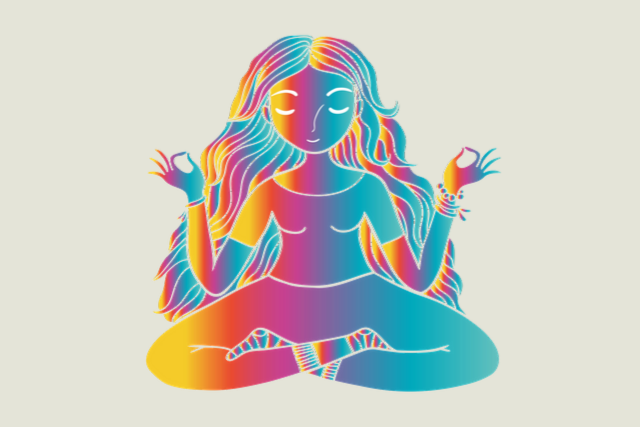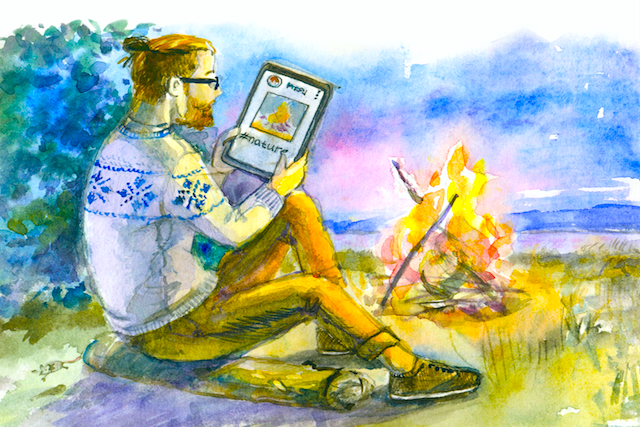Using The Importance of Determination to Achieve Your Dreams
What is Determination?
Determination is a key skill for achieving goals in your personal and work life. It helps you stay focused and keep pushing toward important milestones. By learning more about determination, you can improve in your career and feel more motivated to tackle challenges at work.
- Key Traits of Determined Individuals
- Persistence
- Resilience
- Focus
- Patience
Regardless of whether your goal is to become a successful YouTuber with hundreds of thousands of subscribers, to write and publish a book, or to lose weight and get back in shape, you need the determination to help you succeed with it.
And in this guide, I will share with you why determination is important in life. It is the #1 quality that you must develop if you want to succeed, achieve your goals, and live a better life…
5 Importance of Determination
1. Determination allows you to persevere until you make it

Success is a long journey. And so, without determination, you will give up faster than you thought. And determination allows you to persevere and persist until you reach your destination.
At age 65, Harland Sanders was broke and penniless. He was forced to close his business when a new highway was built to bypass his restaurant. Down but not out, Harland was determined to make a comeback. But all he ever had was his fried chicken recipe.
And so Harland started his journey to sell his fried chicken recipe to business owners. He traveled door to door and visited all the restaurants in his local area. There were many nights when he had to sleep in his car. He even approached restaurant owners and cooked his fried chicken on the spot for them.
I bet you know what happened next. Harland Sanders was turned down 1,009 times before someone finally said yes to his fried chicken recipe. By 1964, Colonel Harland Sanders had 600 franchises selling his trademark chicken. That one yes has transformed the way we eat.
Colonel Harland Sanders was best known for founding Kentucky Fried Chicken, also known as KFC.
Without determination, Colonel Harland Sanders would never make it. His determination allowed him to persist and persevere despite all the odds. You can read more about it here.
Most people would have given up after receiving a couple of rejections. But not Colonel Sanders. He was determined. And that was how he managed to go through so many rejections and still move forward in life.
So, are you determined like Colonel Harland Sanders?
Read: How to Develop Determination So You Won’t Give Up
2. Determination helps you overcome failures and hardships

The second reason why determination is important is that it is a quality that helps you overcome failures, setbacks, and hardships in your journey.
Let’s face it, success is tough. It is hard. If it is easy, everyone would be successful. And because success is difficult, you will face many setbacks and failures along the way.
Therefore, without determination, you will never make it to the finish line.
The difference between extraordinary people and ordinary people is that extraordinary people are determined. They are willing to go the ‘extra’ mile and not give up. This is what makes them ‘extra’ordinary.
Ordinary people, on the other hand, choose to quit and give up whenever they encounter failures and setbacks. They choose the easy way out.
This is why so many people have dreams and goals, but only a minority of them are able to materialize what they want in life.
Imagine if your goal is to become a successful YouTuber. You plan to publish 2 videos every week. Two months later, you have published 8 videos, but the number of subscribers to your channel is less than 100. How do you feel?
Not good, right? And this is where most people choose to give up. This is also where your level of determination plays an important role.
Someone truly determined will continue to improve and work on his goal no matter what, which is to build a successful YouTube channel.
However, those who lack determination will give up on their goal. They will choose to do something else. And they will give lousy excuses as to why they can’t make it.
Which category do you fit in?
Read: How to Overcome Tough Times and Succeed (5 Principles To Overcome Setbacks)
3. Determination makes you work hard and become relentless
That’s right, people who are determined are willing to work hard for what they want. But people who lack determination will choose to stay in their comfort zone and refuse to change.
If you want to know your level of determination, just look at how hard you work toward your goal. Your action says it all.
People who are NOT determined will only work on their goals when they are convenient. They will only choose to pursue their dreams and take action whenever they are motivated.
But people who are determined will do it no matter what, even when they don’t feel like it.
Do you know that Tiger Woods trained in the rain at midnight? When his friend saw him hitting golf balls at 3 AM and asked him about it, he said, “It doesn’t rain very often in Northern California. It’s the only chance I have to practice hitting in the rain.” You can read the story here.
And that was why Tiger Woods became one of the best golfers in the world. He was determined and committed to making it to the top.
As you can see, when you are determined to do something or to achieve a target, you will become relentless. You are willing to go all out (or go all-in) and make it happen.
Being determined makes you work extremely hard. It gives you the strength and the mental toughness to overcome all odds and take massive action.
So, are you determined to achieve your goals no matter what?
Read: Why Hard Work is Important to Achieve Success in Life
4. Determination improves your creativity and helps you find a way

When there is a will, there will always be a way. It is not about whether you can achieve the success you desire, it is about your determination for it. Success has nothing to do with the ‘how’, but everything to do with the ‘why’.
A lot of people get it wrong and think that they lack the know-how, or the knowledge, or the talent, and that is why they cannot succeed.
However, it is not the know-how, your knowledge, or your skills that will determine your success. It is your will, your determination, and how persistent you are.
You see, no one was born a master. Every master was once a beginner. And that means you can learn to get good at something.
If you think that successful people can achieve outstanding results because they are talented or skillful, think again…
- Do you know that Soichiro Honda’s factory was bombed twice due to war, and was leveled a third time after an earthquake? But Honda was determined to make it. That was how he got the idea of inserting a motor into a bicycle, and that was how Honda Super Cub was born. And the rest was history.
- J.K. Rowling is the first billionaire author after she published her Harry Potter books. However, she wasn’t born with a silver spoon. Rowling was jobless, divorced, and broke. She had to live on government welfare. But she was determined and kept writing until she turned her dream into reality.
- Steve Jobs, the legend who co-founded Apple was fired from the very company he started. But he was determined and passionate about what he did. And so he started another company called NeXT and also bought Pixar. After that, Apple bought NeXT and Jobs went back to Apple to become the CEO. He then launched iPod, iPad, and iPhone, which revolutionized the entire tech and mobile industry.
The more you study the biographies of successful people, the more you will understand how being determined played a vital role in reaching success.
Success is not a walk in the park. And things will definitely go wrong in your journey. Mistakes, failures, and setbacks are inevitable.
But when you are determined and when things go wrong, you can still maintain your motivation and focus. That’s one of the most important benefits of being self-determined. It allows you to stay focused even when things are not going your way.
People are often affected by their feelings and emotions. When you buy a stock and the whole market goes into panic selling, you will be affected and wanted to sell too.
You want to learn from Warren Buffett’s ability, which is to ‘divorce’ yourself from whatever is going around you.
There is no doubt that Buffett is a genius when it comes to identifying companies that are undervalued and he just loves numbers so much. He can read the company’s annual reports from back-to-back.
Besides his skill in finding undervalued companies, another thing that makes him one of the greatest investors in the world is his ability to hold on to the stocks even when the market fluctuates.
Buffett seems to be able to ignore the market performance and divorce himself from all the noises around him while holding on to his stocks and his decisions.
This requires a lot of determination and emotional reserve.
You see, most people are emotionally affected when the prices of stocks in the market fluctuate. People will tell you to sell or to buy, which eventually will make you irrational and fearful. You can read more about Warren Buffett’s secret to success here.
As you can see, when you are highly determined, you will be able to focus on your goals better. You know what result you are looking for, and it gives you the ability to stick to the plan until you make it.








